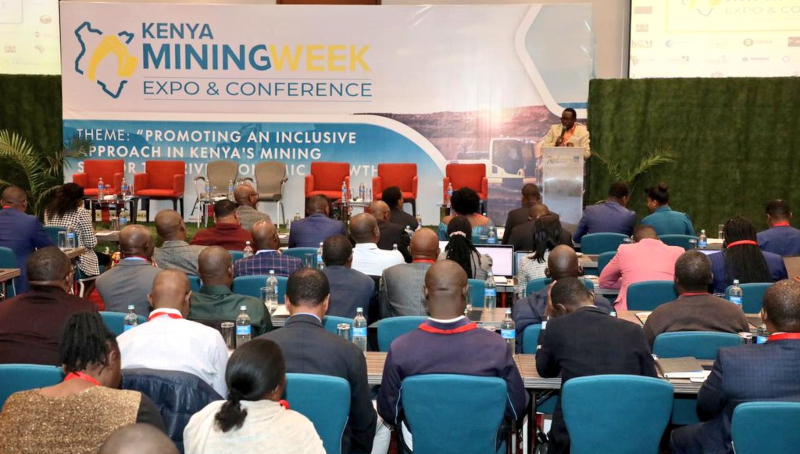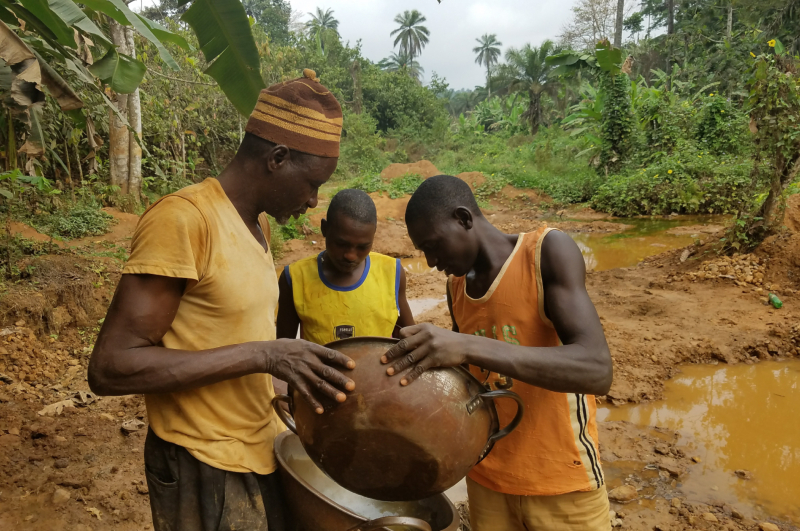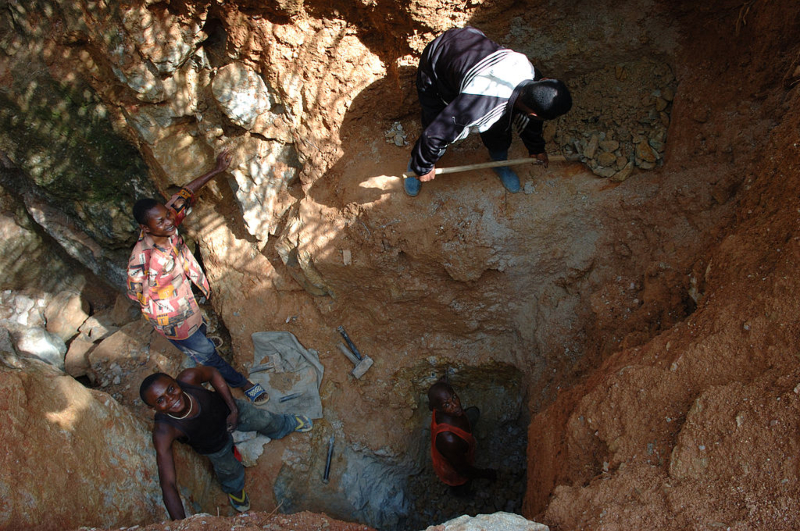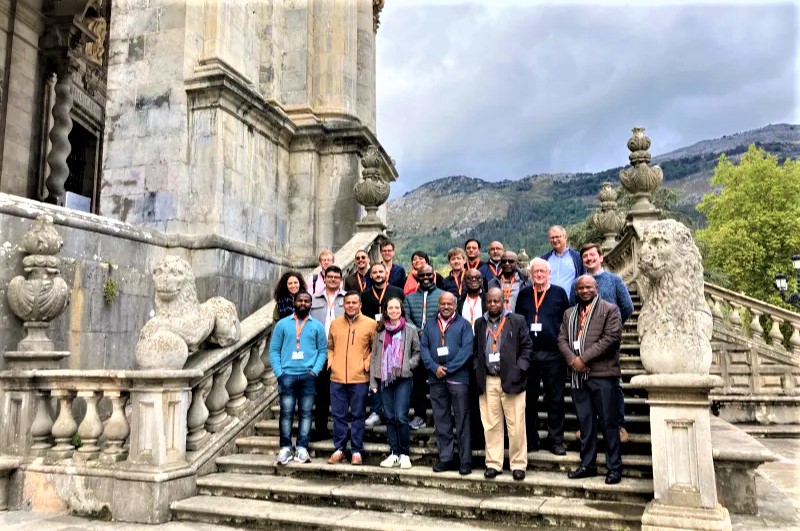

Promoting an inclusive approach in Kenya's mining sector to drive economic growth.
The Jesuit Justice and Ecology Network Africa was among organisations that graced the 2023 Kenya Mining Week Expo and Conference whose theme was "Promoting an inclusive approach in Kenya's mining sector to drive economic growth."
The event was underpinned by the need to reimagine the links between Kenya’s mining sector and the nation’s broader economic goals. The industry stakeholders took into account the changing market conditions, technological advancements, and evolving environmental and social priorities, to ensure that Kenya’s mineral wealth is harnessed for sustainable growth and development. The event was hosted by the Association for Women in Energy and Extractives in Kenya (AWEIK) in partnership with the Kenya Chamber of Mines from 17th to 18th July 2023. The conference commenced with a strong focus on the abundant natural resources and unexplored territories that Kenya is blessed with. These valuable resources offer great potential for greenfield projects, and the recently published findings of the National Airborne geophysical survey are expected to stimulate investments across the entire mining value chain.
Kenya Trade Principal Secretary Abubakar Hassan noted in his opening remarks that the government projects in the mining industry have the potential to contribute up to 10% of the country's GDP. Kenya Mining Principal Secretary, Elijah Mwangi observed that Kenya has a vast deposit of minerals required to power a green revolution, adding that their sustainable exploitation will be dependent on enacting regulatory safeguards to avert ecological pollution and conflicts. He noted that the ministry is prioritizing the formalization of artisanal and small-scale mining through the formation of marketing cooperatives to enhance artisanal mining incomes, simplify their regulation environment and improve their mining standards. Subsequently, Kenya is reviewing the mining act to ensure the sector adheres to social and environmental regulations while spreading benefits to local communities.
Kenya has prioritized the exploration and extraction of precious, industrial, and minerals crucial for the energy transition. The government's unwavering commitment to creating a favourable investment climate and a business-friendly environment is aimed at attracting high-quality investments into the mining sector. During the event, a significant initiative was discussed—the creation of a deal book to support artisanal miners in enhancing their funding opportunities. This move is expected to provide vital financial assistance and promote the adoption of sustainable mining practices. Additionally, the Kenya Development Corporation's role in implementing de-risking strategies adds further support to the mining industry.
At a panel discussion on strengthening mining policies, regulatory frameworks, and formalization for sustainable development it was noted that 13% of the world’s minerals come from Africa and 25% of the world’s miners are from indigenous communities who are at risk of losing their land due to mining activities. It was also emphasized that stakeholders in the mining industry need to develop a legal framework to ensure respect for human rights. The panel discussion also stressed the need for small-scale miners to raise their concerns. Further, to solve the issue of low returns on gemstones, it was noted that the government would enhance the value addition of raw gemstones mined in Taita-Kwale counties.
During the event, the planetGOLD noted that small-scale gold miners in the country face vast environmental and socio-economic challenges, impeding their full potential in economic contribution. Over 146,000 men and women rely on artisanal gold mining across Kenya, with more than 500,000 people benefiting indirectly from the activity. Artisanal mining constitutes a crucial livelihood and holds the potential to drive economic development and community prosperity if done responsibly. The planetGOLD Kenya is a project implemented by the United Nations Development Programme in partnership with the Ministry of Environment, Climate Change and Forestry. Its objective is to support the formalisation of the artisanal and small-scale gold mining (ASGM) sector and the development of responsible mining, by increasing the government and private sector’s capacity and improving regulatory frameworks.
Environment Principal Secretary Festus Ng’eno reiterated the government's commitment to addressing the challenges that ASGM face, in a bid to make them more feasible and sustainable. He noted that the government for instance, among other initiatives, has ratified the Minamata Convention on Mercury, a treaty that seeks to reduce and where feasible eliminate the use and release of mercury from ASGM.
The collective efforts displayed by Kenya at the Mining Week Expo and Conference clearly demonstrate the nation's dedication to fostering the growth of its mining sector. Kenya is well-positioned to attract substantial investments and contribute to its overall socio-economic development by showcasing its abundant natural resources, prioritizing essential minerals, and implementing measures to facilitate investment and manage risks.
Related Articles


Select Payment Method
Pay by bank transfer
If you wish to make a donation by direct bank transfer please contact Fr Paul Hamill SJ treasurer@jesuits.africa. Fr Paul will get in touch with you about the best method of transfer for you and share account details with you. Donations can be one-off gifts or of any frequency; for example, you might wish to become a regular monthly donor of small amounts; that sort of reliable income can allow for very welcome forward planning in the development of the Society’s works in Africa and Madagascar.
Often it is easier to send a donation to an office within your own country and Fr Paul can advise on how that might be done. In some countries this kind of giving can also be recognised for tax relief and the necessary receipts will be issued.


